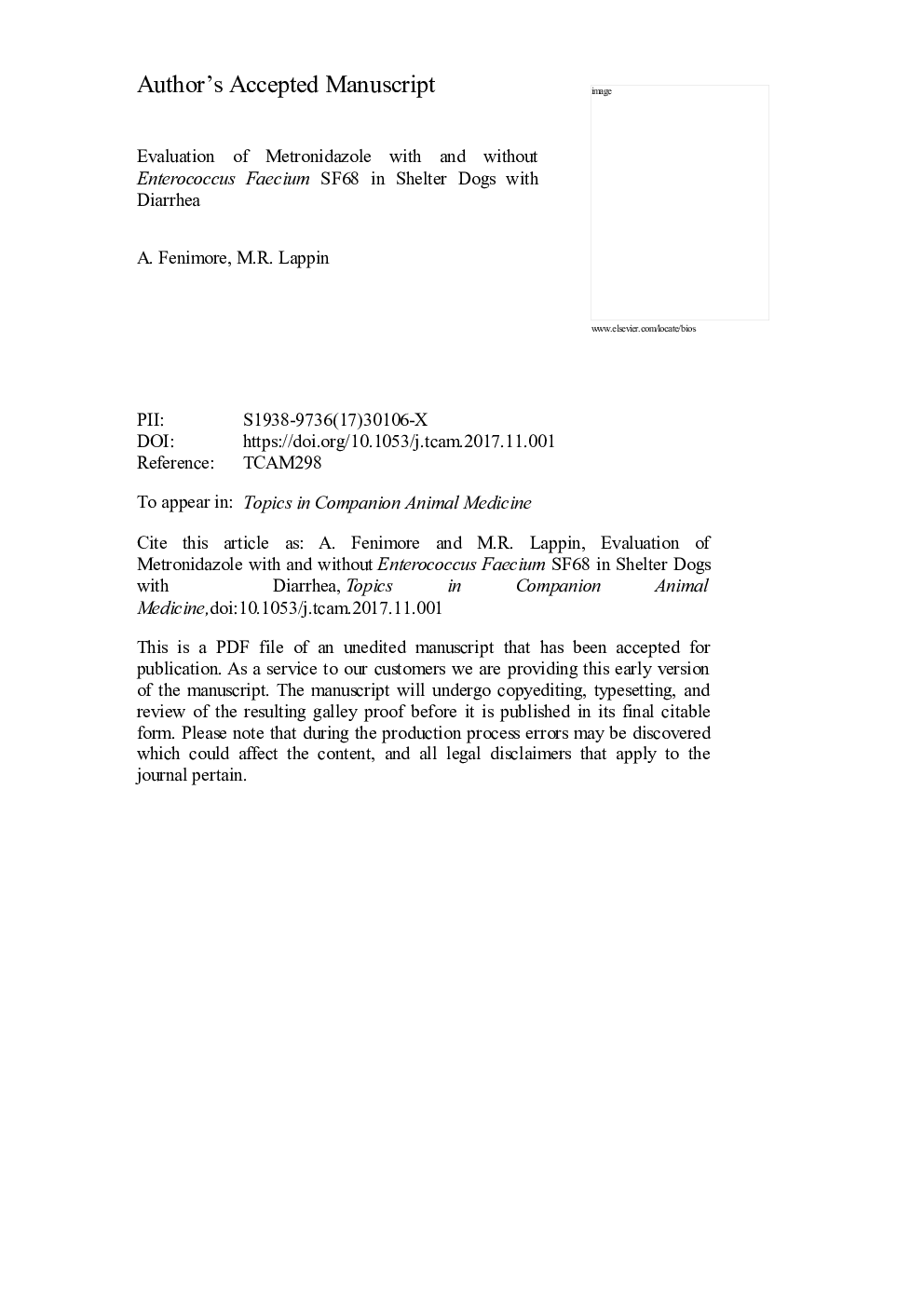| Article ID | Journal | Published Year | Pages | File Type |
|---|---|---|---|---|
| 8485037 | Topics in Companion Animal Medicine | 2017 | 16 Pages |
Abstract
Diarrhea is common in shelter dogs and nonspecific therapies like therapeutic diets, probiotics, and drugs with activity against Giardia spp. or enteric bacteria are commonly prescribed empirically. All dogs in this study were administered metronidazole, fed a standardized diet, and randomized to either receive a commercially available probiotic (Purina® Pro Plan® Veterinary Diets; FortiFlora® Probiotic Supplement, FortiFlora, Nestle Purina PetCare, St Louis, MO) or a placebo which was the commercial product without the probiotic for 7 days. A fecal score was assigned to each stool passed during the study by masked individuals. Fecal samples were evaluated for select enteric agents including nematodes, Giardia spp., Cryptosporidium spp., and Clostridium perfringens enterotoxin before and at the end of the treatment period. There were no differences between groups in regard to parasite prevalence. By day 7, a normal stool (<5) was detected in 37.5% of the dogs administered metronidazole and 68.8% of the dogs administered dual therapy, but the result was not significant (P = .1556). The percentages of days with normal stools were significantly higher (P = .0496) for dogs administered dual therapy 65.6%) when compared to those administered metronidazole alone (46.9%). Giardia cysts were eliminated and diarrhea resolved in both dogs that were infected in the SF68 group. In contrast, of the 7 Giardia positive dogs in the placebo group, 6 (85.7%) were still positive for Giardia cysts on day 7, and 4 of those dogs still had diarrhea on day 7. Addition of SF68 to this protocol of metronidazole and a standardized diet appeared to enhance clinical responses in shelter dogs with diarrhea.
Related Topics
Life Sciences
Agricultural and Biological Sciences
Animal Science and Zoology
Authors
Audra DVM, MS, Laura DVM, Michael R. DVM, PhD, DACVIM,
